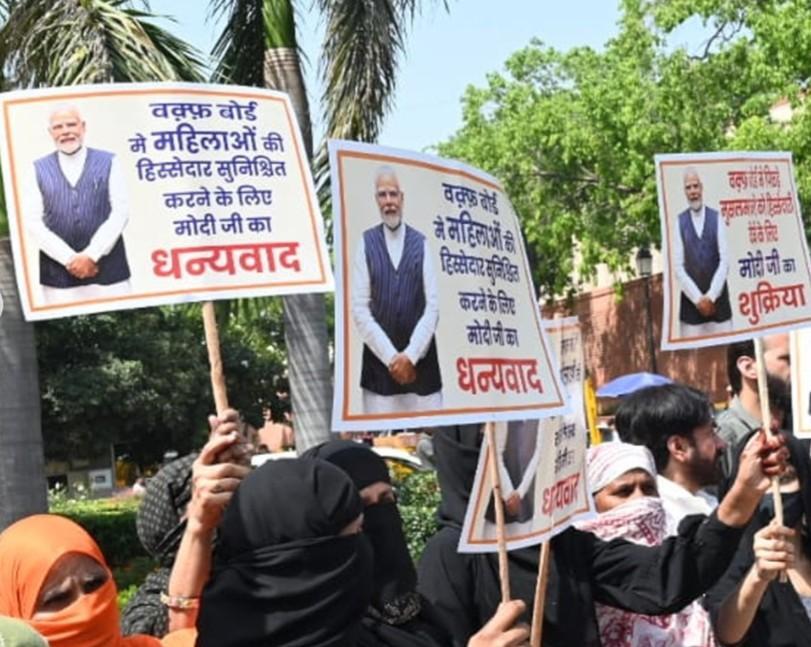
Waqf (Amendment) Bill gets President Murmu’s Assent
The Waqf (Amendment) Bill, a significant legislation aimed at revamping the governance and management of Waqf properties, has received the assent of President Droupadi Murmu. This development comes after the Bill was passed by both Houses of the Parliament, with the Rajya Sabha granting its approval on June 22, 2025. The President’s nod to the Bill is a significant milestone in the journey of this important legislation, which seeks to benefit the poor and marginalized sections of the Muslim community.
The Waqf Bill was introduced in the Lok Sabha in December 2024 and was later passed by the House. The Bill was then sent to the Rajya Sabha, where it was debated for several hours before being passed on June 22, 2025. The Bill aims to bring transparency and accountability in the management of Waqf properties, which are religious endowments that are used to support the poor and marginalized sections of the Muslim community.
The government has been keen to pass this legislation, which it believes will help to bring about greater transparency and accountability in the management of Waqf properties. The Bill seeks to empower the Waqf Board to take decisions on the management and utilization of Waqf properties, and to ensure that the properties are used for the benefit of the poor and marginalized sections of the Muslim community.
The passage of the Waqf Bill is seen as a significant achievement for the government, which has been working towards revamping the governance and management of Waqf properties. The Bill is expected to bring about greater transparency and accountability in the management of these properties, and to ensure that they are used for the benefit of the poor and marginalized sections of the Muslim community.
The government has been keen to pass this legislation, which it believes will help to bring about greater transparency and accountability in the management of Waqf properties. The Bill seeks to empower the Waqf Board to take decisions on the management and utilization of Waqf properties, and to ensure that the properties are used for the benefit of the poor and marginalized sections of the Muslim community.
The passage of the Waqf Bill is also seen as a significant achievement for the Muslim community, which has been demanding greater transparency and accountability in the management of Waqf properties. The Bill is expected to bring about greater empowerment to the Waqf Board, which will enable it to take decisions on the management and utilization of Waqf properties, and to ensure that the properties are used for the benefit of the poor and marginalized sections of the Muslim community.
The government has also given its nod to The Mussalman Wakf (Repeat) Act, 2025, which is another significant legislation aimed at revamping the governance and management of Waqf properties. This Act seeks to empower the Waqf Board to take decisions on the management and utilization of Waqf properties, and to ensure that the properties are used for the benefit of the poor and marginalized sections of the Muslim community.
The passage of the Waqf Bill and the nod to The Mussalman Wakf (Repeat) Act, 2025, are significant developments that are expected to bring about greater transparency and accountability in the management of Waqf properties. These legislations are expected to empower the Waqf Board to take decisions on the management and utilization of Waqf properties, and to ensure that the properties are used for the benefit of the poor and marginalized sections of the Muslim community.
The government’s efforts to revamp the governance and management of Waqf properties are expected to benefit the poor and marginalized sections of the Muslim community, and to bring about greater transparency and accountability in the management of these properties. The passage of the Waqf Bill and the nod to The Mussalman Wakf (Repeat) Act, 2025, are significant developments that are expected to bring about greater empowerment to the Waqf Board, and to ensure that Waqf properties are used for the benefit of the poor and marginalized sections of the Muslim community.






